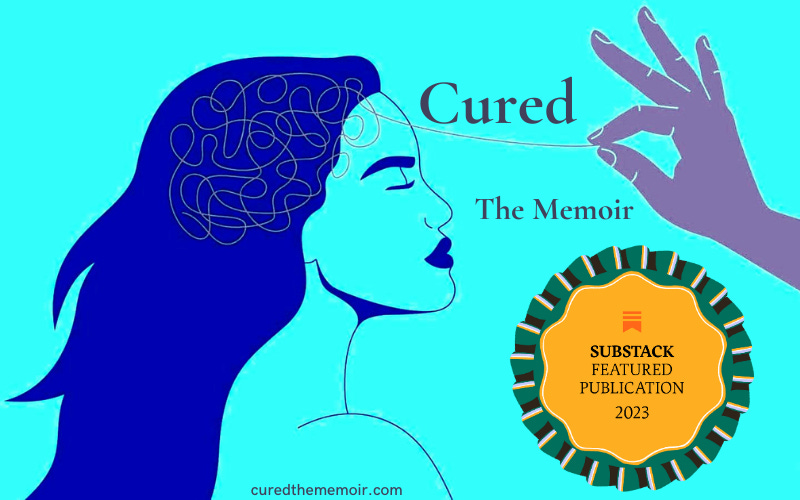Recovery from Mental Disorders? Is that possible?
Answer: Yes.
The Substance Abuse and Mental Health Services Administration (SAMHSA), the governmental agency in charge of official policy regarding mental conditions and substance use disorders, defines recovery as “a process of change through which individuals improve their health and wellness, live a self-directed life, and strive to reach their full potential.”
SAMHSA’s definition is more extensive than this. It includes four dimensions and ten principles. I’m going to give you the short version.
If you want the really short version, here’s the iconic (at least in my mind) Professor of Psychiatry at Yale Medical College and Senior Advisor to SAMHSA’s Office of Recovery (more on that in another essay) Larry Davidson:
Recovery essentially centers on three basic principles: improving health and wellness, living a self-directed life, and striving to reach our full potential. What do these mean?
1. Improve our health and wellness
This goes beyond some abstract notion of “mental health” or “mental well-being;” instead, it focuses on
Resilience, which I’ll cover in another essay but which entails having the ability to deal with change and adversity
Living in a safe environment
Maintaining physical health (physical conditions like obesity are closely linked to mental conditions like depression)
Having hope for a better future (or a future—the absence of hope and believing I’d never recover were the primary forces in my suicidality)
Finding purpose and meaning
Notice that eliminating symptoms isn’t on here. Psychiatric “symptoms” are part of the human condition—even psychosis. (I used to think psychosis was different but as someone I know who hears voices explained, “Ever had a song stuck in your head? That’s not the same, but it gives you an idea.”)
2. Live a self-directed life
This principle starts with the treatment we receive. We, as patients, are equal partners in recovery, not passive recipients of care. As we say in the recovery community, clinicians are experts on pathologies, theories, and treatments, and we are experts on ourselves. That means our treatment is
Person-driven, i.e., as much as possible, we define our own goals, and clinicians provide all the information available (including the fallibility of diagnoses and risks of certain medications and treatments), so we can make empowered decisions and regain control over our lives
Strengths-based, so we focus on what’s right with ourselves (our strengths, talents, coping strategies, resources, and values) and our lives instead of what’s wrong
Holistic in that it addresses the whole person—our faith, race, class, gender, sexuality, socio-economic status, the treatment we’ve received and medications we’ve taken, drug and alcohol use, time, place, social network, environment, personality, genetics, biology, sleeping habits, lifestyle, and diet—and our whole lives—mind, body, spirit, and community
Trauma-centered—e.g., domestic violence, physical abuse, previous mental health treatments, war.
Based on respect from our communities, institutions, clinicians, the media, etc.
Non-linear and achieved in different—just as our experiences of mental illness and emotional distress are singular, our recovery will be too
Inviting of peer support—“peers” are those of us who’ve recovered and help others in their recovery
3. Strive to reach our full potential
This includes
purpose
relationships
support
community
culture and cultural background.
Let me break this down.
Finding purpose has nothing to do with being an executive at Google (thank goodness); it can be gardening, going back to school, volunteering, managing our finances, or (say) owning a cat or two or three.
Having relationships doesn’t mean having a lot of friends or being socially at ease or being vulnerable with everyone; I have very few friends (it’s actually delightful—much less pressure), am not close with work colleagues, rely heavily on my family and (yes) my cats, and get a lot of my social contact from my teaching and my role as a certified Mental Health Peer Support Specialist, and I have recovered.
Support will come from different areas: family, friends, mental health peer support specialists, mental health professionals, online communities, and (perhaps) cats.
Community always makes me think of a neighborhood block party. Community is anywhere we meet others and feel we belong—like, say, the cat-video community on Instagram.
Culture and cultural background are whatever that means to us and often include the values, beliefs, and traditions that guide our decisions and shape what’s important to us.
None of this is to imply that we recover simply by deciding to or that mental and emotional suffering is a choice. We don’t just “get over” debilitating psychosis or depression or anxiety or mania. Recovery isn’t a question of will; at the same time, it can’t happen if we don’t know it’s possible, so please share:
Support independent journalism. Readers like you make my work possible. Get the annual discounted subscription—about the equivalent of purchasing one hardcover book.
Buy Pathological: The True Story of Six Misdiagnoses (HarperCollins) here:





